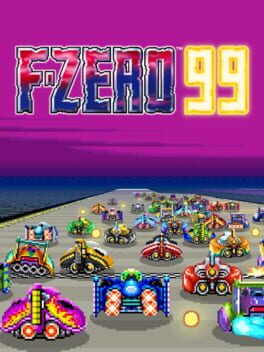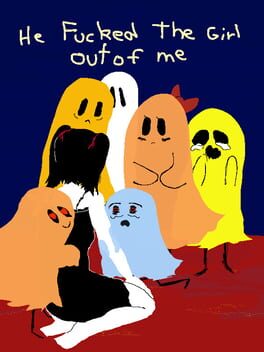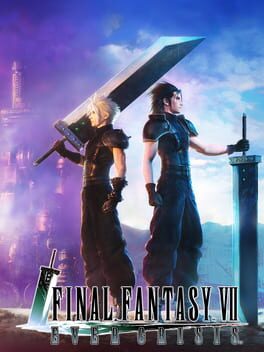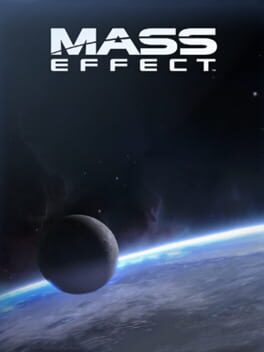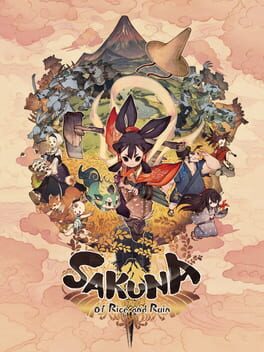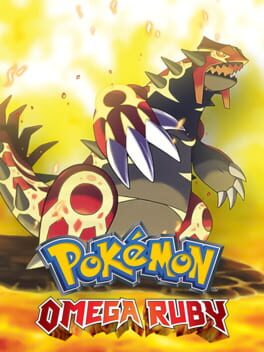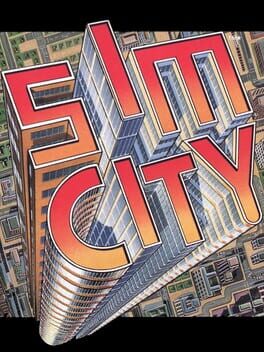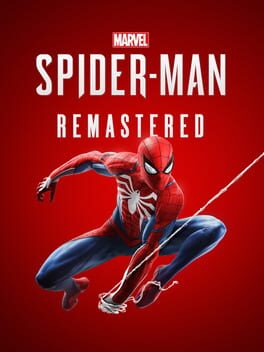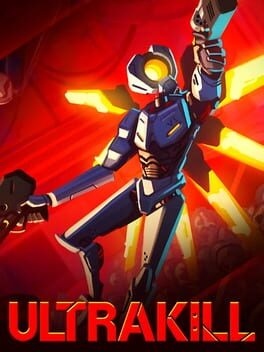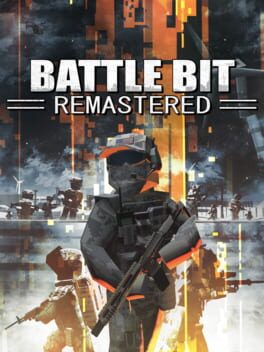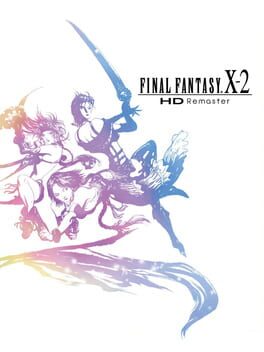Konic64
259 Reviews liked by Konic64
F-Zero 99
2023
F-Zero 99
2023
It's a shame.
I probably spent about 20 years both ironically and unironically asking people in forums and discord chats about a new F-Zero finally getting made, basically to the point now where even I'm in on the joke that it's not happening, and I just keep repeating it for the sake of tradition every time a Direct is announced. At the very least I'll take F-Zero GX HD with online, that'd be sick I think.
Welp, here we are. It happened, I got my joke wish and I am so completely numb to it. A cheap asset flip game that will get delisted in a year after it does its rounds of entertaining streamers for a week.
I'm going back to bed for another 20 years.
I probably spent about 20 years both ironically and unironically asking people in forums and discord chats about a new F-Zero finally getting made, basically to the point now where even I'm in on the joke that it's not happening, and I just keep repeating it for the sake of tradition every time a Direct is announced. At the very least I'll take F-Zero GX HD with online, that'd be sick I think.
Welp, here we are. It happened, I got my joke wish and I am so completely numb to it. A cheap asset flip game that will get delisted in a year after it does its rounds of entertaining streamers for a week.
I'm going back to bed for another 20 years.
I haven't really ever played a game like this; I tend to ignore a lot of the current indie space. But I really, really enjoyed this. Melancholic, slightly harrowing, and even cute in moments, it's a touching story that deeply resonated with me, even though I don't personally have experience with the main subject. Especially when it comes to stories with subjects like this, that's an impressive feat. It would also be remiss of me not to mention how good the art is. It's not like, "wow, I'm blown away, nice graphics, video game." But, like, shit. It looks pretty good, y'know.
Final Fantasy XVI
2023
This review contains spoilers
Final Fantasy 13 (and Lightning Returns) is my favorite of the mainline Final Fantasy games, and when I started playing this one, I knew almost right away that I was going to find a lot to love.
Now that I've finished it, I can say that FF 16 is for brothers what FF 13 is for sisters. Joshua and Clive form the emotional core of the narrative just as Lightning and Serah do with 13. More than that though, both games are primarily about family--blood family, yes, but primarily found family.
The world our characters inhabit in this game is a profoundly sad one--much like our own. It's a world beset by systemic bigotry, geopolitical strife and climate change, and one where you could forgive people for not finding much to live for.
And it's that very thing--finding something to live for--that we guide Clive and his family towards. And Clive guides his allies and the whole realm towards that same thing in kind.
This is a beautiful game full of despair, hope, love and a search for meaning. In the end, despite all of the pre-release comparisons to Game Of Thrones, FF 16 is never cynical; bonds are never tested, Clive is never found wanting. Instead, this game does something much more brave: it demonstrates to us that love and hope can and do win. The sun can--and literally does--rise the next morning on a new and better world.
I should mention the gameplay stuff I reckon too! This game has the best difficulty feature I have ever played for an action game: the ability to equip some built-in accessories that cause Clive to automatically dodge attacks as well as for the player to only have to repeatedly press the attack button to put together incredible combos! I absolutely love that part--it's what made the game playable for me. I was unable to progress past the very first boss in the Final Fantasy 7 Remake because of my inability to play action games like that--but because of the accessibility option here I was able to play, and love, this game.
Apart from that, I quite simply loved all of the gameplay elements. The hunts were fun, the side quests were lovely--it was all wonderful.
This game is as good as a modern game can get! You should play it, I think!
Now that I've finished it, I can say that FF 16 is for brothers what FF 13 is for sisters. Joshua and Clive form the emotional core of the narrative just as Lightning and Serah do with 13. More than that though, both games are primarily about family--blood family, yes, but primarily found family.
The world our characters inhabit in this game is a profoundly sad one--much like our own. It's a world beset by systemic bigotry, geopolitical strife and climate change, and one where you could forgive people for not finding much to live for.
And it's that very thing--finding something to live for--that we guide Clive and his family towards. And Clive guides his allies and the whole realm towards that same thing in kind.
This is a beautiful game full of despair, hope, love and a search for meaning. In the end, despite all of the pre-release comparisons to Game Of Thrones, FF 16 is never cynical; bonds are never tested, Clive is never found wanting. Instead, this game does something much more brave: it demonstrates to us that love and hope can and do win. The sun can--and literally does--rise the next morning on a new and better world.
I should mention the gameplay stuff I reckon too! This game has the best difficulty feature I have ever played for an action game: the ability to equip some built-in accessories that cause Clive to automatically dodge attacks as well as for the player to only have to repeatedly press the attack button to put together incredible combos! I absolutely love that part--it's what made the game playable for me. I was unable to progress past the very first boss in the Final Fantasy 7 Remake because of my inability to play action games like that--but because of the accessibility option here I was able to play, and love, this game.
Apart from that, I quite simply loved all of the gameplay elements. The hunts were fun, the side quests were lovely--it was all wonderful.
This game is as good as a modern game can get! You should play it, I think!
I'll keep playing because of how much of a sucker I am for the world of Final Fantasy VII, but as a game it's not great.
The character design and aesthetics is really good and the cutscenes are at the same level of the recent Remake and Crisis Core Reunion.
The combat system is simplified from the already very intuitive classic FF7 system although I had some connectivity problems where the combat would lag a bit. That plus the absence of voice acting if not for the beginning narration by Sephiroth made me enjoy the beginning of my adventure a bit less.
The stories are done in a way where you jump from narrative to narrative, for example stopping the original FF7 storyline to Cloud's first meeting with Aerith and then jumping to the beginning of Crisis Core.
The gacha is atrocious with a stamp system that is just vile.
Overall is an ok-ish game, I'll keep playing to relive the trauma that is the FF7 timeline and to see what they do with the new story for Young Sephiroth.
The character design and aesthetics is really good and the cutscenes are at the same level of the recent Remake and Crisis Core Reunion.
The combat system is simplified from the already very intuitive classic FF7 system although I had some connectivity problems where the combat would lag a bit. That plus the absence of voice acting if not for the beginning narration by Sephiroth made me enjoy the beginning of my adventure a bit less.
The stories are done in a way where you jump from narrative to narrative, for example stopping the original FF7 storyline to Cloud's first meeting with Aerith and then jumping to the beginning of Crisis Core.
The gacha is atrocious with a stamp system that is just vile.
Overall is an ok-ish game, I'll keep playing to relive the trauma that is the FF7 timeline and to see what they do with the new story for Young Sephiroth.
Mass Effect
2021
Sy-Fy Channel original movie meets mediocre seventh-gen shooter. Mass Effect is a game that's largely carried by the strength of its worldbuilding, atmosphere, and cast of characters, though the latter still feels like a step down from the game's spiritual predecessor, Knights of the Old Republic (complete with a carbon copy knockoff of Carth, right down to the same voice actor, only with a far less interesting backstory). Having recently gone back and played a bit of KOTOR before this, it was interesting to see that despite how far BioWare managed to come in four years, there were still many details lacking. For example, even with the wider variety of much-improved animations available during conversations, Mass Effect's character interactions still feel far more robotic. This certainly wasn't helped by the creepy crazy-eyes everyone possesses.
From a gameplay perspective, Mass Effect shrines brightest during its downtimes. Immersing yourself in the Citadel, walking around learning all about these weird aliens and the society they've constructed, vibing to the fantastic soundtrack - these were all things I felt most at home doing. But then you head off on a mission and you're either shooting the same four aliens in cramped corridors over and over or exploring barren, rocky planets (only differentiated by their shade of color) in 2007's most mandated feature: the vehicle section. I can almost appreciate how bold and innovative they were trying to be here, but the exploration completely breaks down when the only thing you have to find are rocks, probes, and the same copy-pasted bunkers that all feature the exact same layout. In-between you're playing a thousand games of Simon to get loot you probably already have five copies of. It's a real bummer.
Also, despite claims I've heard over the years the first Mass Effect was the strongest from a role-playing perspective, even that side of the game comes off more than a little shallow. I didn't feel like my class or its abilities added much to the experience when every problem was so easily solved with the gunplay. The morality system - a holdover from Knight of the Old Republic - feels extraneous in a world that largely wants to play in shades of grey. In a Star Wars setting, it makes perfect sense - good and evil are tangible things thanks to the Force. But here, despite their attempt to rebrand it with different names, you often feel like you're punished for making sensible choices. Renegade can run the gamut of "cold but logical" decisions to "bloodthirsty and psychotic."
A decent game but one that's ultimately a product of its time.
From a gameplay perspective, Mass Effect shrines brightest during its downtimes. Immersing yourself in the Citadel, walking around learning all about these weird aliens and the society they've constructed, vibing to the fantastic soundtrack - these were all things I felt most at home doing. But then you head off on a mission and you're either shooting the same four aliens in cramped corridors over and over or exploring barren, rocky planets (only differentiated by their shade of color) in 2007's most mandated feature: the vehicle section. I can almost appreciate how bold and innovative they were trying to be here, but the exploration completely breaks down when the only thing you have to find are rocks, probes, and the same copy-pasted bunkers that all feature the exact same layout. In-between you're playing a thousand games of Simon to get loot you probably already have five copies of. It's a real bummer.
Also, despite claims I've heard over the years the first Mass Effect was the strongest from a role-playing perspective, even that side of the game comes off more than a little shallow. I didn't feel like my class or its abilities added much to the experience when every problem was so easily solved with the gunplay. The morality system - a holdover from Knight of the Old Republic - feels extraneous in a world that largely wants to play in shades of grey. In a Star Wars setting, it makes perfect sense - good and evil are tangible things thanks to the Force. But here, despite their attempt to rebrand it with different names, you often feel like you're punished for making sensible choices. Renegade can run the gamut of "cold but logical" decisions to "bloodthirsty and psychotic."
A decent game but one that's ultimately a product of its time.
Some games are harder to drop than others, and Sakuna is one of those titles I'd file in the category of "I wish I could finish it." I like the game, I really do - it's such an odd mash-up of genres wrapped in a charming package and surprisingly high quality despite being developed by such a small team. After about five hours or so, I had gone through my third cycle of growing rice and felt like I had really gotten the hang of it. By the time of my fourth harvest, I was incredibly satisfied with what I had accomplished.
Then I realized I had another 20-25 hours to go and it sunk in that I didn't have it in me. I had seen all I needed to see by that point.
For as much as I genuinely enjoyed the meticulous tedium that went into the planting, cultivating, and harvesting of rice, it was Sakuna's combat that did the game in. It's a shame there too because the combat does kinda work; it's fast and snappy and the movement Sakuna's raiment provides is pretty fun. But it's also incredibly repetitive and wears thin after a few hours of beating up on the same handful of enemies. The combat is also surprisingly sweaty at times, really pushing you to be on your toes which feels completely at odds with the rest of the game's pace. It can also become grindy, requiring you to wait for harvest time when Sakuna's stats level up before you can progress in areas you've had unlocked for a while now. It became difficult to see myself pushing through all this to reach the end.
The sad thing is I could easily see a game like this being reworked into something more my speed; if this was a turn-based RPG instead of a budget beat-em-up I probably would have stuck with it. But that wasn't the game they made. Still, there is something truly endearing about Sakuna: Of Rice and Ruin, so it's hard to be too mad it. Bonus points to Sakuna herself being voiced by Naomi Ōzora, also known for portraying Hana Uzaki in Uzaki-chan wa Asobitai (making her the perfect choice for such a bratty character). But for now...I think I've harvested my last grain of rice. And much like eating actual rice, I walk away feeling like I should have had something more fulfilling than what I ultimately got.
Then I realized I had another 20-25 hours to go and it sunk in that I didn't have it in me. I had seen all I needed to see by that point.
For as much as I genuinely enjoyed the meticulous tedium that went into the planting, cultivating, and harvesting of rice, it was Sakuna's combat that did the game in. It's a shame there too because the combat does kinda work; it's fast and snappy and the movement Sakuna's raiment provides is pretty fun. But it's also incredibly repetitive and wears thin after a few hours of beating up on the same handful of enemies. The combat is also surprisingly sweaty at times, really pushing you to be on your toes which feels completely at odds with the rest of the game's pace. It can also become grindy, requiring you to wait for harvest time when Sakuna's stats level up before you can progress in areas you've had unlocked for a while now. It became difficult to see myself pushing through all this to reach the end.
The sad thing is I could easily see a game like this being reworked into something more my speed; if this was a turn-based RPG instead of a budget beat-em-up I probably would have stuck with it. But that wasn't the game they made. Still, there is something truly endearing about Sakuna: Of Rice and Ruin, so it's hard to be too mad it. Bonus points to Sakuna herself being voiced by Naomi Ōzora, also known for portraying Hana Uzaki in Uzaki-chan wa Asobitai (making her the perfect choice for such a bratty character). But for now...I think I've harvested my last grain of rice. And much like eating actual rice, I walk away feeling like I should have had something more fulfilling than what I ultimately got.
Pokémon Omega Ruby
2014
I like how "too much water" was one of the most agreeable criticisms of the original Ruby and Sapphire games, but when an official gaming publication comes out and says it everyone loses their goddamn minds. You all owe IGN an apology.
That said, the fact that it WAS a valid criticism of these remakes means that OmegaRuby and AlphaSapphire only managed to achieve the status of "serviceable." Quite frankly, the originals could have used a much greater overhaul in their design, but Game Freak opted instead for a more faithful retake. It had a few new twists, some decent postgame content, and was redone in the visual style of X & Y, but the Hoenn you get here is largely unchanged.
They're not bad games, and it actually surprised me how much nostalgia I was hit with playing through OmegaRuby given I'm pretty lukewarm towards the the Generation 3 games overall, but I do wish they had done more here. Ignoring the additional content found in Emerald was also a huge mistake, one they would repeat again with the Diamond and Pearl remakes, so yay, no lessons learned.
Bring back Mega Evolutions.
That said, the fact that it WAS a valid criticism of these remakes means that OmegaRuby and AlphaSapphire only managed to achieve the status of "serviceable." Quite frankly, the originals could have used a much greater overhaul in their design, but Game Freak opted instead for a more faithful retake. It had a few new twists, some decent postgame content, and was redone in the visual style of X & Y, but the Hoenn you get here is largely unchanged.
They're not bad games, and it actually surprised me how much nostalgia I was hit with playing through OmegaRuby given I'm pretty lukewarm towards the the Generation 3 games overall, but I do wish they had done more here. Ignoring the additional content found in Emerald was also a huge mistake, one they would repeat again with the Diamond and Pearl remakes, so yay, no lessons learned.
Bring back Mega Evolutions.
Final Fantasy XIII
2009
It did not get good 10 hours in. It did not get good 20 hours in. It did not get good 30 hours in. It did not get good 40 hours in.
It did not get good.
It's fascinating to come to a game like this for the first time. You know, one with the kind of baggage Final Fantasy XIII has, and so many years removed from its most heated discourse. It dawned on me very quickly during my playthrough that the criticisms I heard levied against this game were all indeed true. However, I also feel like they didn't tell the whole story. The reality is that when people painted the picture of what this controversial entry into the series entailed, they didn't do enough justice to how awful it truly is.
For example, when people describe the game as being "too linear" - often in a negative context - that doesn't get to the heart of the problem. Yes, it can sometimes be an issue, but other Final Fantasy games have been overly linear and haven't suffered nearly as much for it. Here, you'll find yourself trudging down the same hallway, looking at the same things, with nothing to break the tedium up, for hours at a time. When you couple that with FF13's braindead combat system, a pisspoor attempt to attract people to the genre during a time many were questioning what relevance the genre still had (especially in the West), you get a mind-numbing experience that offers little for the player to engage in. Let me tell you, I got some good Twitter scrolling in during the first 20 hours of this game.
And yet - AND YET - if it had merely remained that, I'd have walked away like a disaffected anime protagonist going "Whatever." I don't want to belittle this point, mind you - saying "It gets good 20 hours in" is a BIG ask. That's a lot of time to invest in something that isn't particularly compelling. But the real problem is that it got worse than that. Much worse. Pounding my head against my desk on the verge of pulling my hair out worse. When the credits finally rolled, I was thrilled that I would never have to play another second of this game again.
That part where everyone says the game gets good? A lie. Sure, after almost NINE full chapters, you get access to your complete party and see the true breadth of the combat system, but what you find is a game that substitutes basic RPG staples like resource management and strategy for a flowchart of your paradigm sets that require little thought process to choose the right one. Worse yet, as the game progresses, you realize the most optimal strategy is to switch back and forth between the same ones ad nauseam because there is absolutely no penalty for doing so and it's much quicker than letting your ATB gauge recharge. More than playing a video game, my time with Final Fantasy XIII felt like experiencing a simulation of one. You don't even have to execute commands - it's often better not to because the game simply moves too fast to fumble around in menus. Just make sure you're on the right paradigm set and you're good to go.
Well, except for that part where the game "opens up" - all five minutes of it, before you realize the one open area in the game is full of monsters far too powerful to fight at that point in the game. It then corrals you into yet another hallway for several hours, culminating in the game's ONE dungeon. You can tell this game was made during the period when they were ostensibly embarrassed to call this an RPG. All the while, FF13 tosses an overwhelming number of high-level enemies at you in standard encounters to create the illusion of difficulty, before it ends with a series of boss battles that required me to throw away the team I mostly ran with because they literally could execute the strategies required to complete it. Fucking lame. This was also the point in the game where previously minor issues - like enemies interrupting your attacks/healing or how it's an auto-lose if your party leader dies - become omni-present, resulting in a staggering amount of frustration.
Oh, what's that? What did I think of the story? I genuinely couldn't tell you. By the time Final Fantasy XIII started getting around to explaining what was going on, I was mentally checked out. The only thing I could tell you is that I disliked the majority of the cast, outside of Sazh and maybe Fang. (Sazh was genuinely too good for this game.) I do, however, think the complaints about needing to read the datalogs to explain the story are unfounded. That said, it is an issue that the game largely delegates worldbuilding to said datalogs. I never really got a good sense of the world around me from just experiencing the game. It's genuinely hard to tell how this universe operates from a visual standpoint; a lot is going on and very little of it is presented to the player without the additional reading.
I think it speaks volumes that the most fun I had with Final Fantasy XIII came in the earliest moments of its campaign. It opens in such a spectacular fashion that it imprints on you the feeling that this thing might actually beat the bad game allegations. And, for those first few hours, you can turn your brain off and go with the flow, but eventually, the thirteenth entry in the Final Fantasy series begins to reveal itself as perhaps the worst one. There are quite a few other games in the series I need to go through before I can definitively say that, but it's going to take a lot to outrank the misery and frustration I felt forcing myself to see this through to the end. It really wasn't worth it.
It did not get good.
It's fascinating to come to a game like this for the first time. You know, one with the kind of baggage Final Fantasy XIII has, and so many years removed from its most heated discourse. It dawned on me very quickly during my playthrough that the criticisms I heard levied against this game were all indeed true. However, I also feel like they didn't tell the whole story. The reality is that when people painted the picture of what this controversial entry into the series entailed, they didn't do enough justice to how awful it truly is.
For example, when people describe the game as being "too linear" - often in a negative context - that doesn't get to the heart of the problem. Yes, it can sometimes be an issue, but other Final Fantasy games have been overly linear and haven't suffered nearly as much for it. Here, you'll find yourself trudging down the same hallway, looking at the same things, with nothing to break the tedium up, for hours at a time. When you couple that with FF13's braindead combat system, a pisspoor attempt to attract people to the genre during a time many were questioning what relevance the genre still had (especially in the West), you get a mind-numbing experience that offers little for the player to engage in. Let me tell you, I got some good Twitter scrolling in during the first 20 hours of this game.
And yet - AND YET - if it had merely remained that, I'd have walked away like a disaffected anime protagonist going "Whatever." I don't want to belittle this point, mind you - saying "It gets good 20 hours in" is a BIG ask. That's a lot of time to invest in something that isn't particularly compelling. But the real problem is that it got worse than that. Much worse. Pounding my head against my desk on the verge of pulling my hair out worse. When the credits finally rolled, I was thrilled that I would never have to play another second of this game again.
That part where everyone says the game gets good? A lie. Sure, after almost NINE full chapters, you get access to your complete party and see the true breadth of the combat system, but what you find is a game that substitutes basic RPG staples like resource management and strategy for a flowchart of your paradigm sets that require little thought process to choose the right one. Worse yet, as the game progresses, you realize the most optimal strategy is to switch back and forth between the same ones ad nauseam because there is absolutely no penalty for doing so and it's much quicker than letting your ATB gauge recharge. More than playing a video game, my time with Final Fantasy XIII felt like experiencing a simulation of one. You don't even have to execute commands - it's often better not to because the game simply moves too fast to fumble around in menus. Just make sure you're on the right paradigm set and you're good to go.
Well, except for that part where the game "opens up" - all five minutes of it, before you realize the one open area in the game is full of monsters far too powerful to fight at that point in the game. It then corrals you into yet another hallway for several hours, culminating in the game's ONE dungeon. You can tell this game was made during the period when they were ostensibly embarrassed to call this an RPG. All the while, FF13 tosses an overwhelming number of high-level enemies at you in standard encounters to create the illusion of difficulty, before it ends with a series of boss battles that required me to throw away the team I mostly ran with because they literally could execute the strategies required to complete it. Fucking lame. This was also the point in the game where previously minor issues - like enemies interrupting your attacks/healing or how it's an auto-lose if your party leader dies - become omni-present, resulting in a staggering amount of frustration.
Oh, what's that? What did I think of the story? I genuinely couldn't tell you. By the time Final Fantasy XIII started getting around to explaining what was going on, I was mentally checked out. The only thing I could tell you is that I disliked the majority of the cast, outside of Sazh and maybe Fang. (Sazh was genuinely too good for this game.) I do, however, think the complaints about needing to read the datalogs to explain the story are unfounded. That said, it is an issue that the game largely delegates worldbuilding to said datalogs. I never really got a good sense of the world around me from just experiencing the game. It's genuinely hard to tell how this universe operates from a visual standpoint; a lot is going on and very little of it is presented to the player without the additional reading.
I think it speaks volumes that the most fun I had with Final Fantasy XIII came in the earliest moments of its campaign. It opens in such a spectacular fashion that it imprints on you the feeling that this thing might actually beat the bad game allegations. And, for those first few hours, you can turn your brain off and go with the flow, but eventually, the thirteenth entry in the Final Fantasy series begins to reveal itself as perhaps the worst one. There are quite a few other games in the series I need to go through before I can definitively say that, but it's going to take a lot to outrank the misery and frustration I felt forcing myself to see this through to the end. It really wasn't worth it.
SimCity
1991
I really loved the simplicity and personality of the SNES version of SimCity. I've tried for decades to chase the feeling I had playing this as a kid but to be honest, even with how much more advanced city builders became, this particular one had everything I ever needed. Including an absolutely killer soundtrack, one of the most underrated of the 16-bit era!
Get this game on Nintendo Switch Online, Nintendo. I know you can do it - you did for the Wii Virtual Console when it launched back in 2006. You may have forgotten this game is one of your own, but I haven't.
Get this game on Nintendo Switch Online, Nintendo. I know you can do it - you did for the Wii Virtual Console when it launched back in 2006. You may have forgotten this game is one of your own, but I haven't.
Playing Sony's Marvel's Spider-Man for the PlayStation 4 computer entertainment system back in 2018 was a rare case of a dream game coming true. Like most fans of the character, I adored the bizarrely ambitious licensed game that was Activision's Spider-Man 2, and it felt like the deluge of Spider-Man games that came in the wake of its success were always chasing that high yet never quite achieved it. Spider-Man: Web of Shadows was the game that likely came the closest, but it wasn't until Insomniac Games brought forth this big AAA take on the character that it felt like we finally had a game that made you TRULY FEEL LIKE SPIDER-MAN™
Okay, I had to get one in there, but there is truth in that oft-repeated statement. Amazing web-slinging allowing fun and fast traversal over a high-fidelity recreation of Manhattan; a free-flowing combat system that felt the most responsive out of any superhero game and fully utilized all the character's strengths; and finally a story that tapped into the things about Peter Parker that resonate the most with people. That was honestly the biggest surprise for me, and the result is a narrative that I think one can put amongst some of the greatest Spider-Man stories ever told, regardless of medium.
From the opening moments of the game, as the camera pans over Peter's messy, low-income apartment, with an overdue bill notice being slid under his door immediately before he needs to dash out the window for his first mission, you can tell the writers of this game truly understood the assignment. The rest of the game that followed is an incredible underscoring of that, from his dealing with eviction to juggling his failed relationships to being late to every important meeting he needs to attend. It works super well with a story that's traveling at a brisk pace the whole time, making YOU the player feel like you've forgotten to do something important just as Peter often does. And I will forever give credit to this game for having an entire mission dedicated to Peter, at his lowest point, digging through trash to find a lost USB drive. Not many games would showcase their main character doing something of that nature, but it's perfectly in-character for the struggles of this particular superhero.
The game's larger narrative is incredibly jam-packed, hitting all the personal highlights of what you'd want to see from a Spider-Man adventure, complete with a healthy chunk of his rogue's gallery in tow. And yet, it effortlessly handles all these plot threads in unison. The big one, however, that ultimately drives the events and forms the heart of the story, is Peter's relationship with Otto Octavius. The core of this is naturally building off what had been done in Sam Raimi's Spider-Man 2 film, but I think it says a lot about how good the story of this game is that I think they might have even outdone its inspiration. This could be the definitive Doctor Octopus story in all Spider-Man media.
See, in a film, you only have a couple of hours to tell a story, so you need to move things along quickly. The Spider-Man 2 movie gets Doc Ock from Point A to Point B very fast, explaining his fall from respected scientist to evil supervillain as largely the result of a biochip that alters his personality. Marvel's Spider-Man retains that explanation, but given the longer form of storytelling a video game affords, spends much more time building out not only the friendship between Peter and Otto but seeds in stronger anchors to the Doctor's inevitable madness. The darker elements of his personality were always there; the interface with the tentacles merely heightened it. I also think it's a huge mark of honor to the writing that I can say that despite how well this game builds up to Doc Ock's inevitable turn, I was still fully convinced it might not happen...right up until the point you see him pull out the tentacles. Such amazing chemistry and friendship developed between him and Peter that I found myself rooting for Ocatvius to be a good guy for once.
Oh, and another aspect about this incarnation of Doctor Octopus I really loved and wanted to highlight: the origin of his iconic tentacles. It's kind of amazing how the defining aspect of this supervillain has always been such an afterthought in his creation. For me, I saw his development of these things as a cool accomplishment, but most Spider-Man stories treat the tentacles as just a tool he needs for his work before they accidentally become grafted to him. Here, Doc building these things WAS his origin story, and ties into his tragedy as a person, giving him an incredibly sympathetic backstory that truly seals the deal for this characterization of Doc Ock being best ever constructed.
Also, how the game ends was another incredibly bold choice in its writing, and I give huge props to the team at Insomniac for going through with it. It's one of those elements that the Spider-Man comics have struggled forever to deal with, never committing to it and walking it back whenever they try, but here? No, they understood that Spider-Man never gets out clean, always has to balance success with hardship, and what makes the character of Peter Parker truly special is his ability TO make that hard choice. In this case, they gave him the hardest possible choice he could ever have to make, and they didn't even blink in having him do it. No truer understanding of the character than in those final moments next to Aunt May.
All that praise heaped upon this game, and now I have to get in my one big criticism. It has to do specifically with this Remastered version, and it's the reason why I'm docking it points compared to my scoring of the original game. While I'm by no means the first person to harp on this, I absolutely HATE the change in Peter's character design. No explanation from the Insomniac team will change this opinion. The whole point of this game was to have a Peter Parker who was experienced and well-established in the role of Spider-Man, and the original look reflected that. Not only that, he looked like your average guy, which is what Peter is supposed to represent. Instead, he's replaced with a baby-faced Tom Holland lookalike that I just couldn't stand to view for more than a few seconds at a time. Seriously, there's a scene early on where he's in the diner with MJ and it looks like she's his babysitter. How am I supposed to take this seriously? Seems like such a minor complaint and maybe it is but damn does it still piss me off. Playing the Remastered version in full only solidified that.
Beyond that? A truly amazing game. If you can't tell by this review, I fucking love Spider-Man, and despite my initial worries back in the day this might be another overly cinematic snoozefest like many of Sony's offerings, this one stood out as being a genuinely fantastic video game. Much like the film Spider-Man 2 did, I hope Insomniac's Spider-Man 2 will push things to the next level in just a few short months.
Okay, I had to get one in there, but there is truth in that oft-repeated statement. Amazing web-slinging allowing fun and fast traversal over a high-fidelity recreation of Manhattan; a free-flowing combat system that felt the most responsive out of any superhero game and fully utilized all the character's strengths; and finally a story that tapped into the things about Peter Parker that resonate the most with people. That was honestly the biggest surprise for me, and the result is a narrative that I think one can put amongst some of the greatest Spider-Man stories ever told, regardless of medium.
From the opening moments of the game, as the camera pans over Peter's messy, low-income apartment, with an overdue bill notice being slid under his door immediately before he needs to dash out the window for his first mission, you can tell the writers of this game truly understood the assignment. The rest of the game that followed is an incredible underscoring of that, from his dealing with eviction to juggling his failed relationships to being late to every important meeting he needs to attend. It works super well with a story that's traveling at a brisk pace the whole time, making YOU the player feel like you've forgotten to do something important just as Peter often does. And I will forever give credit to this game for having an entire mission dedicated to Peter, at his lowest point, digging through trash to find a lost USB drive. Not many games would showcase their main character doing something of that nature, but it's perfectly in-character for the struggles of this particular superhero.
The game's larger narrative is incredibly jam-packed, hitting all the personal highlights of what you'd want to see from a Spider-Man adventure, complete with a healthy chunk of his rogue's gallery in tow. And yet, it effortlessly handles all these plot threads in unison. The big one, however, that ultimately drives the events and forms the heart of the story, is Peter's relationship with Otto Octavius. The core of this is naturally building off what had been done in Sam Raimi's Spider-Man 2 film, but I think it says a lot about how good the story of this game is that I think they might have even outdone its inspiration. This could be the definitive Doctor Octopus story in all Spider-Man media.
See, in a film, you only have a couple of hours to tell a story, so you need to move things along quickly. The Spider-Man 2 movie gets Doc Ock from Point A to Point B very fast, explaining his fall from respected scientist to evil supervillain as largely the result of a biochip that alters his personality. Marvel's Spider-Man retains that explanation, but given the longer form of storytelling a video game affords, spends much more time building out not only the friendship between Peter and Otto but seeds in stronger anchors to the Doctor's inevitable madness. The darker elements of his personality were always there; the interface with the tentacles merely heightened it. I also think it's a huge mark of honor to the writing that I can say that despite how well this game builds up to Doc Ock's inevitable turn, I was still fully convinced it might not happen...right up until the point you see him pull out the tentacles. Such amazing chemistry and friendship developed between him and Peter that I found myself rooting for Ocatvius to be a good guy for once.
Oh, and another aspect about this incarnation of Doctor Octopus I really loved and wanted to highlight: the origin of his iconic tentacles. It's kind of amazing how the defining aspect of this supervillain has always been such an afterthought in his creation. For me, I saw his development of these things as a cool accomplishment, but most Spider-Man stories treat the tentacles as just a tool he needs for his work before they accidentally become grafted to him. Here, Doc building these things WAS his origin story, and ties into his tragedy as a person, giving him an incredibly sympathetic backstory that truly seals the deal for this characterization of Doc Ock being best ever constructed.
Also, how the game ends was another incredibly bold choice in its writing, and I give huge props to the team at Insomniac for going through with it. It's one of those elements that the Spider-Man comics have struggled forever to deal with, never committing to it and walking it back whenever they try, but here? No, they understood that Spider-Man never gets out clean, always has to balance success with hardship, and what makes the character of Peter Parker truly special is his ability TO make that hard choice. In this case, they gave him the hardest possible choice he could ever have to make, and they didn't even blink in having him do it. No truer understanding of the character than in those final moments next to Aunt May.
All that praise heaped upon this game, and now I have to get in my one big criticism. It has to do specifically with this Remastered version, and it's the reason why I'm docking it points compared to my scoring of the original game. While I'm by no means the first person to harp on this, I absolutely HATE the change in Peter's character design. No explanation from the Insomniac team will change this opinion. The whole point of this game was to have a Peter Parker who was experienced and well-established in the role of Spider-Man, and the original look reflected that. Not only that, he looked like your average guy, which is what Peter is supposed to represent. Instead, he's replaced with a baby-faced Tom Holland lookalike that I just couldn't stand to view for more than a few seconds at a time. Seriously, there's a scene early on where he's in the diner with MJ and it looks like she's his babysitter. How am I supposed to take this seriously? Seems like such a minor complaint and maybe it is but damn does it still piss me off. Playing the Remastered version in full only solidified that.
Beyond that? A truly amazing game. If you can't tell by this review, I fucking love Spider-Man, and despite my initial worries back in the day this might be another overly cinematic snoozefest like many of Sony's offerings, this one stood out as being a genuinely fantastic video game. Much like the film Spider-Man 2 did, I hope Insomniac's Spider-Man 2 will push things to the next level in just a few short months.
Ultrakill
2020
BattleBit Remastered
2023
What I love about BattleBit isn't that it's fun. It's not that it's tactical, either, and I don't find it particularly compelling as a platform for teamwork. As much as I like sticking it to the man, my admiration also doesn't stem from it being a cheaper, more approachable version of Battlefield.
BattleBit makes dying a therapeutic form of art.
All too often, I find death in these games frustrating. You're pulled in by the punchiness of the guns, the gorgeous vistas, and the hard-hitting combat. But all too often, that realism compounds frustration. I want to be immersed in the world in front of me, but I can't because I'm stupid, part of my disability is a reduction in motor capability, and I have this constant, nagging feeling that I'm worse off than the others around me.
What BattleBit does to address this is three-fold: its dedication to a simplistic art style means you take it less seriously, everyone is as vulnerable as you are, and toxicity is actually dealt with. I wrote in my review for Unturned over a year ago that one of the key features of a blocky art style is that it's inherently goofy. It's a flavor of minimalism that favors a more tongue-in-cheek approach, whether or not that was the intent. And it works a lot here! Roblox comparisons are inevitable, and as long as they're welcome, I'll say that this reminds me of the string of really fun First Person Shooters on the platform before it became a shamelessly commercial enterprise. BattleBit might not have the originality of Framed! or Very Important Person, but it's far more polished than either of those ever were and doesn't need to rely on any Freemium trappings to get the job done. If I were to make a serious comparison to any of the games on Roblox now, the obvious candidate is Phantom Forces. I don't find the movement to be as smooth here, but what BattleBit manages to smooth over is a lot of the frustrating aspects of Phantom Forces. Phantom Forces is a game where, roughly eight times out of ten, the optimal strategy I find myself using is to pull an automatic shotgun with a twenty-round drum and unload. It doesn't work to the degree that a sniper would, but still manages to be lots of fun to use. While that's entertaining to a degree, it doesn't fix the fact that Phantom isn't the most balanced of games. You'll have rounds where that strategy can do wonders for you, but you'll also have games where you're always just absolutely being stomped on by players who have had hundreds of hours more experience than you have. It's to BattleBit's benefit that the first time I decided to snipe, somebody from halfway across the map got me. If anyone wanted to do the same to them, they could without hesitation. While, in theory, this sounds ridiculously frustrating, I find that the larger servers create an entirely different beast. Death is not an exception that good soldiers dodge, it's the expectation. You're not playing to win or to even see if you can, but to see how far you can push yourself before something gets you. In that sense, the rules of the game fade into the background. Winning or losing just kind of happens; everything else around them may fade into a blur at some point, but generally speaking, it's kind of a relaxing experience overall. It's super strange to say that about a game whose overwhelmingly chaotic nature will turn anyone expecting a fast-paced, Call of Duty-like arcade experience at the gate. But genuinely, I find losing to be fun here. And I think what reinforces that is that, at least at a cursory glance, the developers seem to be aware of what these kinds of games devolve into. Before entering any of the official servers, you pretty much have to click on an agreement where you promise to be a civilized little gamer and comfortably enjoy your time playing without needing to take casually trash-talk too far. The Steam forums are, predictably, not happy about this. But the people who frequent those have an unhealthy relationship with the word Woke that borders on limerent, so I don't care.
If you really don't care for multiplayer shooters, this isn't going to do much to change your mind. But otherwise, I highly recommend this.
BattleBit makes dying a therapeutic form of art.
All too often, I find death in these games frustrating. You're pulled in by the punchiness of the guns, the gorgeous vistas, and the hard-hitting combat. But all too often, that realism compounds frustration. I want to be immersed in the world in front of me, but I can't because I'm stupid, part of my disability is a reduction in motor capability, and I have this constant, nagging feeling that I'm worse off than the others around me.
What BattleBit does to address this is three-fold: its dedication to a simplistic art style means you take it less seriously, everyone is as vulnerable as you are, and toxicity is actually dealt with. I wrote in my review for Unturned over a year ago that one of the key features of a blocky art style is that it's inherently goofy. It's a flavor of minimalism that favors a more tongue-in-cheek approach, whether or not that was the intent. And it works a lot here! Roblox comparisons are inevitable, and as long as they're welcome, I'll say that this reminds me of the string of really fun First Person Shooters on the platform before it became a shamelessly commercial enterprise. BattleBit might not have the originality of Framed! or Very Important Person, but it's far more polished than either of those ever were and doesn't need to rely on any Freemium trappings to get the job done. If I were to make a serious comparison to any of the games on Roblox now, the obvious candidate is Phantom Forces. I don't find the movement to be as smooth here, but what BattleBit manages to smooth over is a lot of the frustrating aspects of Phantom Forces. Phantom Forces is a game where, roughly eight times out of ten, the optimal strategy I find myself using is to pull an automatic shotgun with a twenty-round drum and unload. It doesn't work to the degree that a sniper would, but still manages to be lots of fun to use. While that's entertaining to a degree, it doesn't fix the fact that Phantom isn't the most balanced of games. You'll have rounds where that strategy can do wonders for you, but you'll also have games where you're always just absolutely being stomped on by players who have had hundreds of hours more experience than you have. It's to BattleBit's benefit that the first time I decided to snipe, somebody from halfway across the map got me. If anyone wanted to do the same to them, they could without hesitation. While, in theory, this sounds ridiculously frustrating, I find that the larger servers create an entirely different beast. Death is not an exception that good soldiers dodge, it's the expectation. You're not playing to win or to even see if you can, but to see how far you can push yourself before something gets you. In that sense, the rules of the game fade into the background. Winning or losing just kind of happens; everything else around them may fade into a blur at some point, but generally speaking, it's kind of a relaxing experience overall. It's super strange to say that about a game whose overwhelmingly chaotic nature will turn anyone expecting a fast-paced, Call of Duty-like arcade experience at the gate. But genuinely, I find losing to be fun here. And I think what reinforces that is that, at least at a cursory glance, the developers seem to be aware of what these kinds of games devolve into. Before entering any of the official servers, you pretty much have to click on an agreement where you promise to be a civilized little gamer and comfortably enjoy your time playing without needing to take casually trash-talk too far. The Steam forums are, predictably, not happy about this. But the people who frequent those have an unhealthy relationship with the word Woke that borders on limerent, so I don't care.
If you really don't care for multiplayer shooters, this isn't going to do much to change your mind. But otherwise, I highly recommend this.
2003-me would have despised the tone and style of this game. 2023-me absolutely adored it...which is why it kind of pains me to find myself abandoning it. Its structure, which essentially amounts to a selection of side quests that you can pick and choose from, wears exceedingly thin, and without a compelling enough hook for the narrative to push me forward, I found myself burning out extremely fast. This is compounded by the fact that many of those quests amount to little more than a collection of uninspired minigames, and the daunting task of doing all of this to see 100% completion weighed too heavily on my motivation to keep going.
Had Final Fantasy X-2 stuck with the same combat system as its predecessor, I might have been able to find enough enjoyment in the game to justify finishing it. However, the switch back to an ATB system kind of doomed the whole experience for me in retrospect. ATB isn't a bad system by any means, but it's always been a weird middle-ground between action and turn-based. Even when done well, as it was here, I still find myself longing for either of the other two options. As a result, my journey with the Final Fantasy X universe ends here. I wish I enjoyed my time in Spira more than I ultimately did.
Had Final Fantasy X-2 stuck with the same combat system as its predecessor, I might have been able to find enough enjoyment in the game to justify finishing it. However, the switch back to an ATB system kind of doomed the whole experience for me in retrospect. ATB isn't a bad system by any means, but it's always been a weird middle-ground between action and turn-based. Even when done well, as it was here, I still find myself longing for either of the other two options. As a result, my journey with the Final Fantasy X universe ends here. I wish I enjoyed my time in Spira more than I ultimately did.
